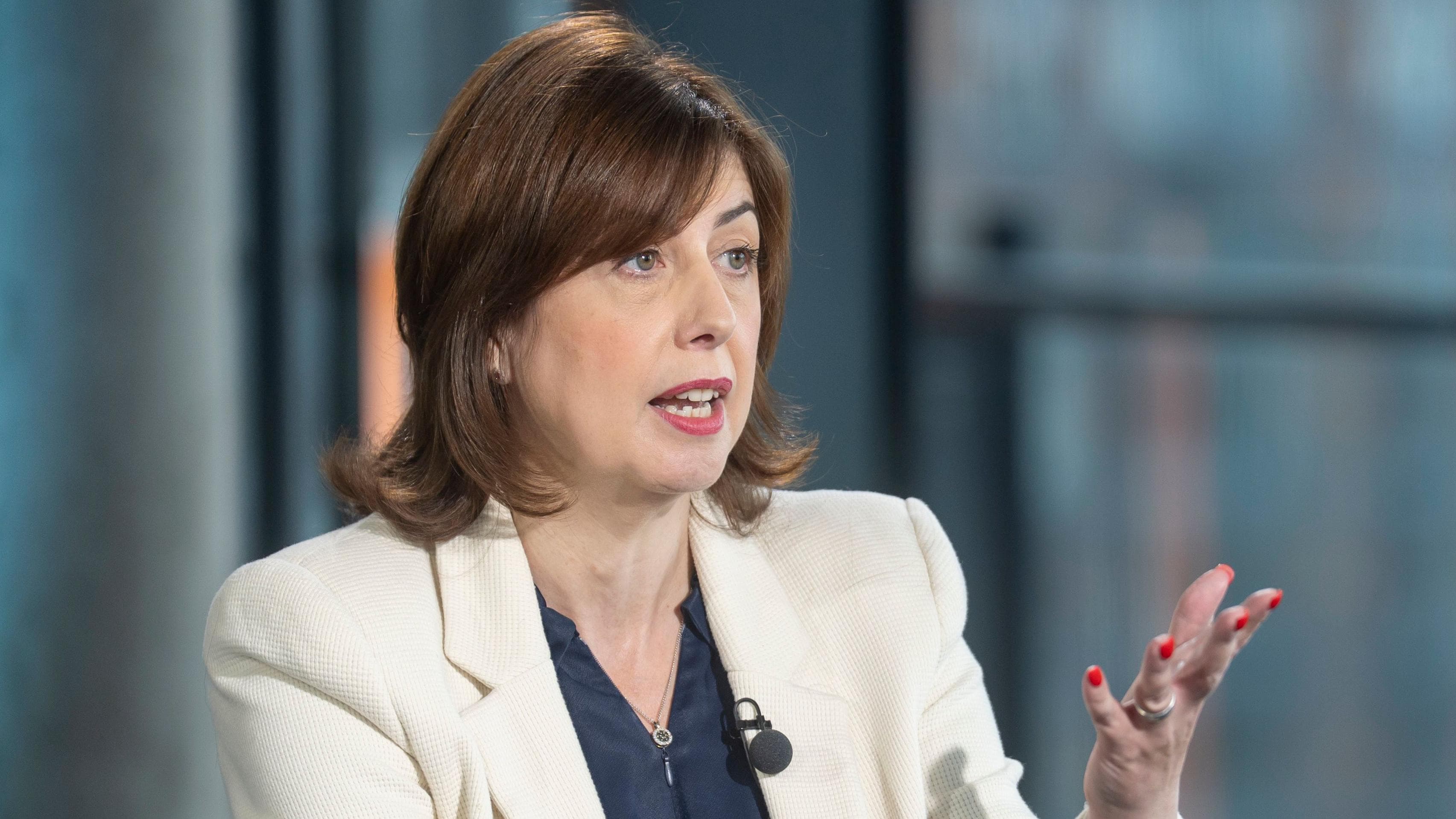We're loading the full news article for you. This includes the article content, images, author information, and related articles.
The election of a more critical voice to the deputy leadership of Britain's ruling party signals potential policy shifts that could influence the UK's crucial trade, aid, and security partnership with Kenya.

LONDON – Lucy Powell, a Member of Parliament for Manchester Central, was elected the new deputy leader of the United Kingdom’s ruling Labour Party on Saturday, 25 October 2025, in a result widely seen as a challenge to Prime Minister Keir Starmer’s authority. The outcome has significant implications, prompting close observation from international partners like Kenya, for whom the UK's political stability and policy direction on trade and development are paramount.
Powell secured 87,407 votes, representing 54.3% of the ballots cast, defeating Education Secretary Bridget Phillipson, who garnered 73,536 votes (45.7%). The election was marked by a notably low turnout of just 16.6% among eligible party members and affiliates. The contest was triggered by the resignation of the previous deputy leader, Angela Rayner, in September 2025.
In a victory speech that hinted at internal party friction, Powell, who was dismissed from her cabinet role as Leader of the House of Commons by Starmer in September, called for a change in the government's approach. "Unity and loyalty comes from collective purpose, not from command-and-control," she stated, urging the leadership to listen more closely to party members and elected representatives. She also warned that the party would not win by trying to "out-Reform Reform," a reference to the right-wing party led by Nigel Farage, suggesting a need to adhere to core Labour values.
While the deputy leadership contest focused on domestic UK issues, the result is significant for Kenya. The UK is a primary strategic partner, with deep-rooted ties in security, trade, and development. A shift in the governing party's internal dynamics could influence the future of this relationship. In July 2025, President William Ruto and Prime Minister Starmer renewed the Kenya-UK Strategic Partnership for 2025–2030, a pact aimed at boosting trade and investment. This partnership is set to unlock over KSh 427 billion in investments across green growth, technology, and security sectors.
The Labour government, since taking office, has expressed a desire for a "new approach to the continent" to foster mutual long-term benefits. However, specific policy details have been sparse. Powell's election, representing a grassroots--focused wing of the party, could amplify calls for changes in foreign policy, including a renewed focus on international development. The Labour Party manifesto commits to restoring development spending to 0.7% of gross national income "as soon as fiscal circumstances allow," a pledge whose timeline could be influenced by internal party pressures.
The UK's current aid spending remains at 0.5% of GNI for 2025. Any change in leadership dynamics could impact the direction of these funds, which support crucial programmes in Kenya, including police reform and climate resilience projects.
The election was framed as a referendum on Prime Minister Starmer's leadership style and political direction. Bridget Phillipson was widely regarded as the Downing Street-preferred candidate, aligned with the current leadership's more centrist stance. Powell, in contrast, campaigned on a platform of giving a stronger voice to party members and has been critical of what she termed "unforced errors" by the government. Her victory from the backbenches, having been recently sacked, is a clear indicator of a desire for a course correction among the party faithful who voted.
Powell has indicated she may refuse a return to a government role, which would free her from collective responsibility and allow her to speak more openly on the party's direction. This sets up a potentially challenging dynamic at the top of the UK government, with a deputy leader empowered to publicly question or critique policy decisions.
For Kenya and the East Africa region, the key takeaway is the potential for increased unpredictability in a major partner. The Starmer government has already engaged with Nairobi on critical issues, including climate finance, the Nairobi Railway City project, and regional security. Observers in Nairobi will be watching closely to see how this internal political shift in London translates into tangible policy, particularly concerning trade agreements, development aid priorities, and the robust defence cooperation that underpins regional stability.
Keep the conversation in one place—threads here stay linked to the story and in the forums.
Sign in to start a discussion
Start a conversation about this story and keep it linked here.
Other hot threads
E-sports and Gaming Community in Kenya
Active 9 months ago
The Role of Technology in Modern Agriculture (AgriTech)
Active 9 months ago
Popular Recreational Activities Across Counties
Active 9 months ago
Investing in Youth Sports Development Programs
Active 9 months ago